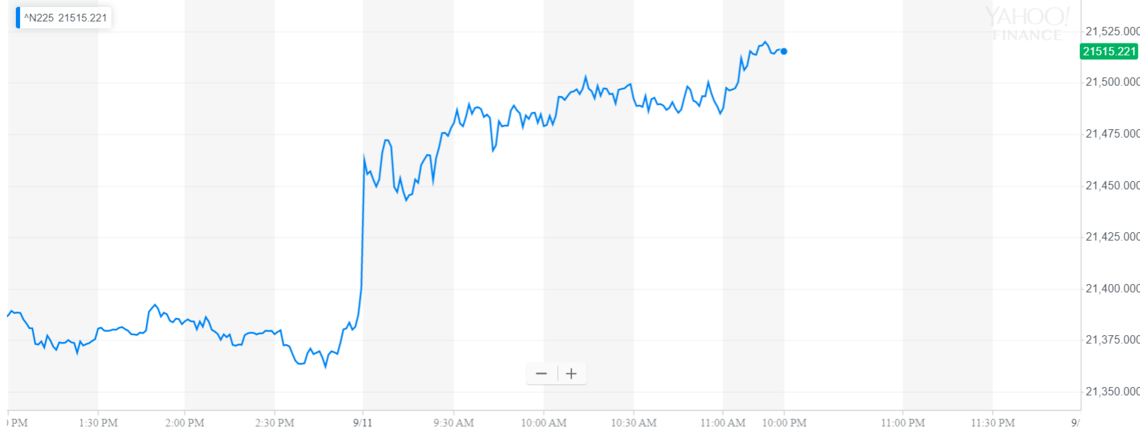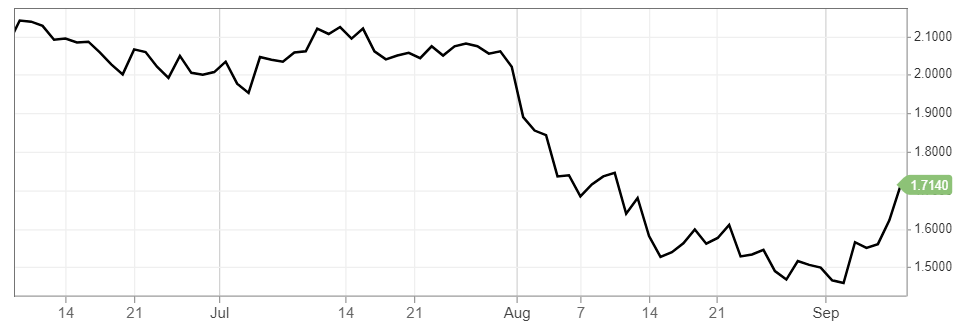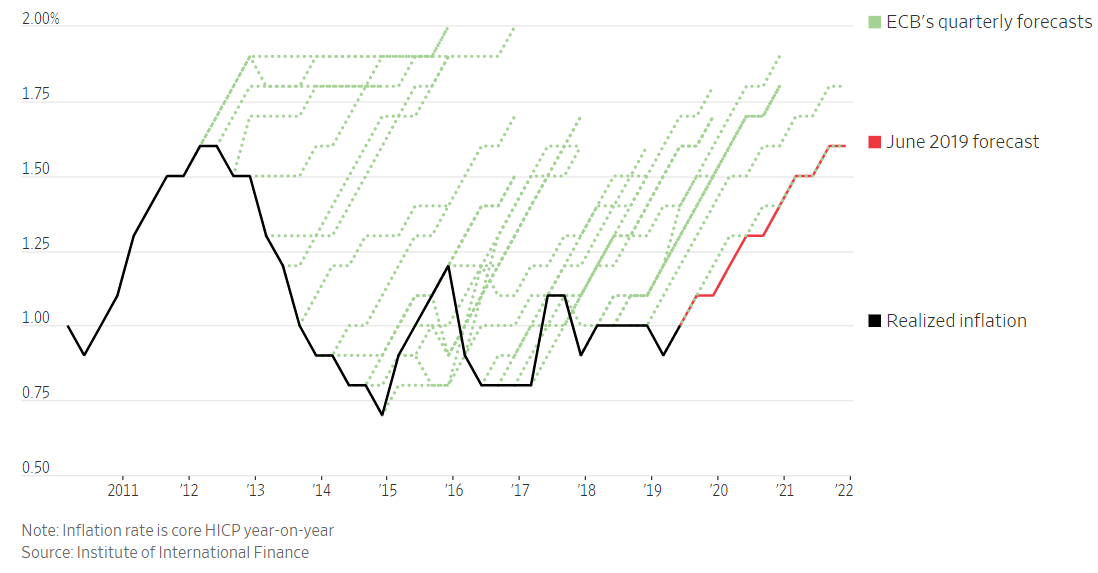Global Markets Wait in Anticipation for Game-Changing ECB Policy Decision

The European Central Bank is expected to unleash new stimulus measures on Thursday. | Image: Shutterstock
Asian stocks traded mostly higher on Wednesday, while U.S. Treasurys notched fresh monthly peaks ahead of one of the most anticipated central-bank meetings of 2019.
In less than 36 hours, the European Central Bank (ECB) will deliver a policy statement that could usher in a new era of monetary easing.
Asian Stocks Mostly Higher
Markets throughout Asia traded mixed-to-higher midweek, with Japanese equities leading the way. Tokyo’s benchmark Nikkei 225 index rallied 0.6% to 21,514.21. The Topix Index climbed 1% to 1,572.77.

In mainland China, the benchmark Shanghai Composite Index fell 0.3% to 3,011.61. Hong Kong’s Hang Seng Index rallied 0.4% to 26,781.40.
U.S. Treasury Yields Extend Rise
U.S. government debt yields extended their recovery on Wednesday, as investors rallied behind the prospect of a new stimulus pledge by central banks in Europe and the United States. Positive developments around U.S.-China trade talks raised optimism for next month’s face-to-face meetings between the two superpowers.
The benchmark 10-year U.S. Treasury yield peaked at 1.73%, according to CNBC, its highest in over a month. The yield was last spotted at 1.714%, up 1.2 basis points.

The interest rate on the 2-year Treasury note was unchanged at 1.664%. The 30-year Treasury bond yield was last up 1.7 basis points at 2.198%.
Bond yields rise as prices fall.
ECB in Focus
The Federal Reserve’s July decision to lower interest rate pales in comparison to what the European Central Bank is expected to pull off this week.
On Thursday, ECB officials are expected to cut the already negative deposit rate by 20 basis points and unleash a new round of quantitative easing. A 20 basis-point reduction would bring the deposit rate to -0.60%.
The ECB’s desperation stems from the fact that it has failed to engineer economic growth and inflation to its liking. Germany, the continent’s largest economy and 30% of Eurozone output, contracted in the second quarter for the first time in over three years. What happens in Germany has direct implications for the rest of the monetary bloc.
Policymakers continue to predict a recovery in inflation despite failing in all their previous forecasts. As The Wall Street Journal shows , the ECB’s quarterly forecasts on inflation have badly missed the mark since the financial crisis.

The ECB will deliver its policy statement at 11:45 GMT on Thursday. A press conference will follow approximately 45 minutes later.